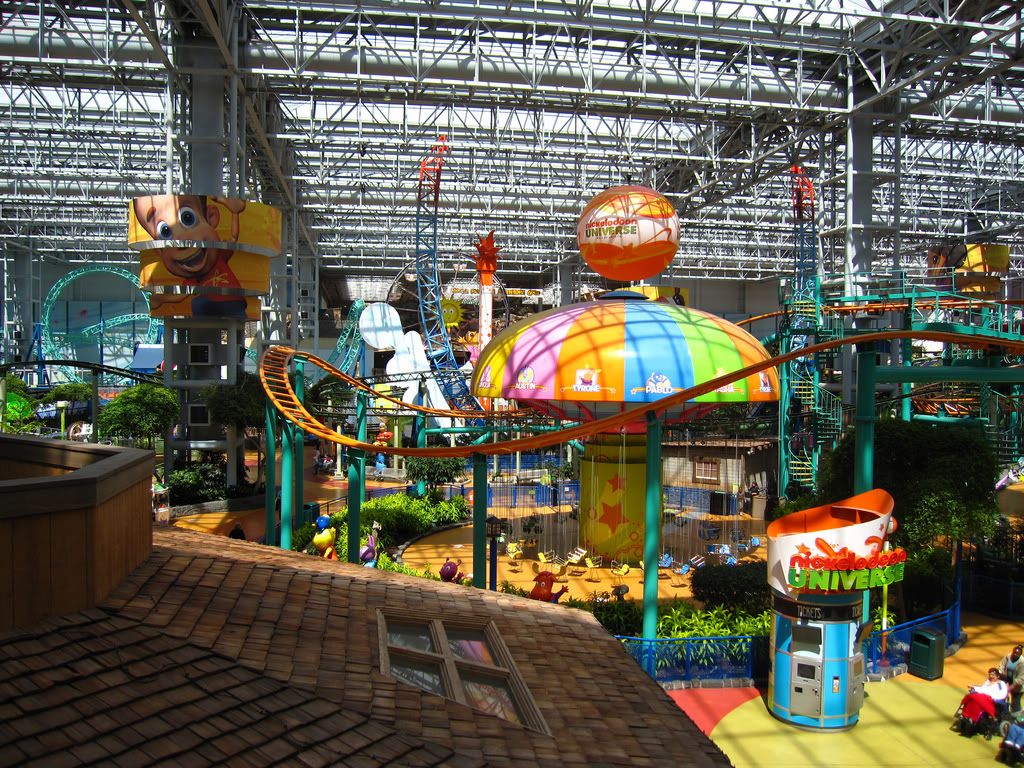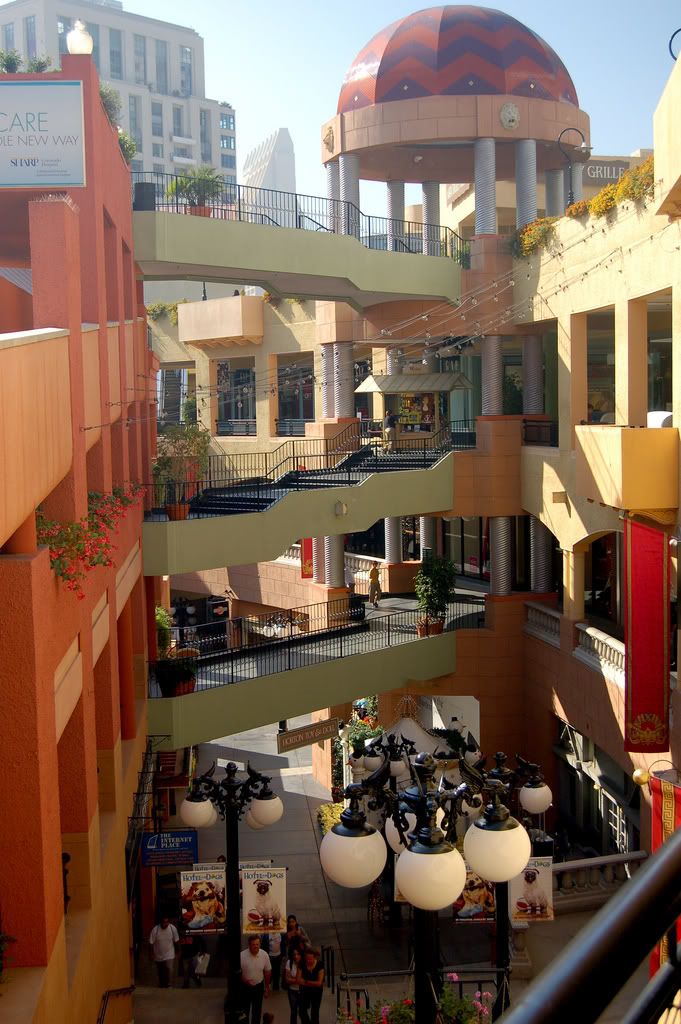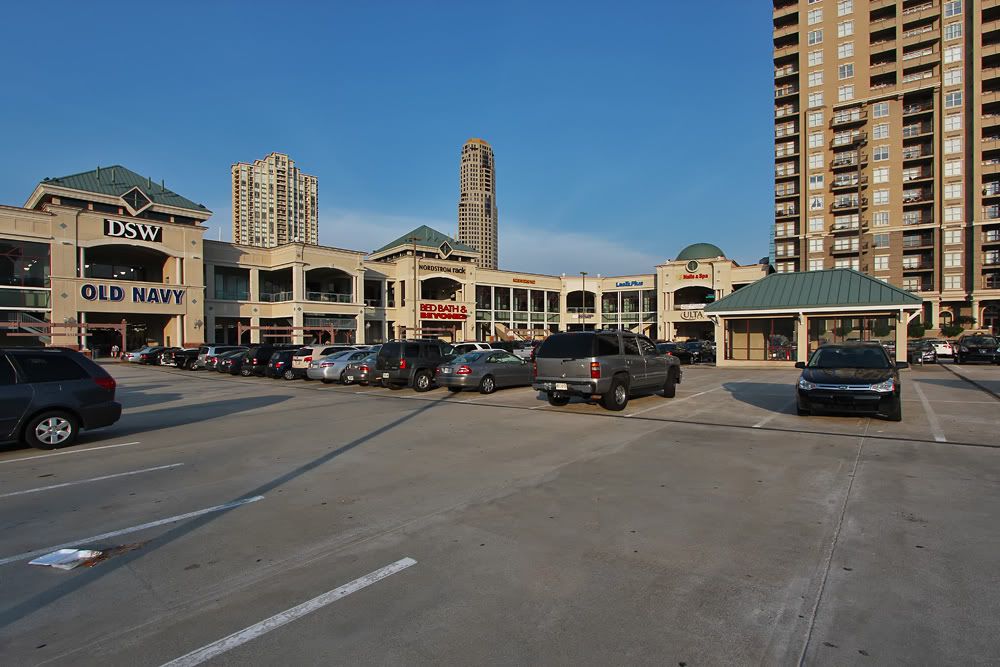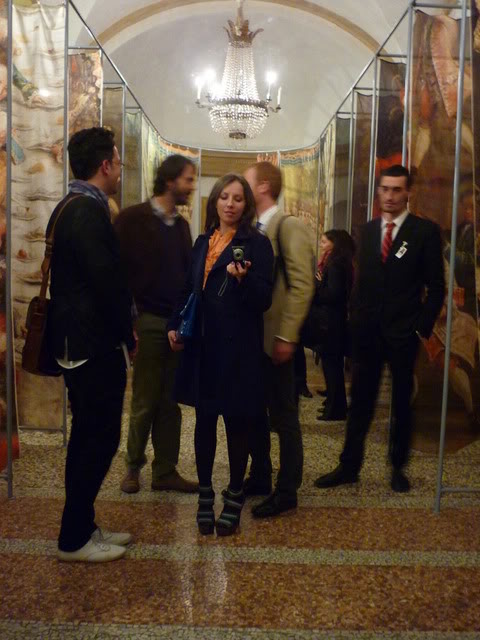I haven't been to Westfield, Shepherd's Bush or Stratford. I won't be going either. I have no need to. I grew up on the West Coast of America where high streets never had a chance to fall into decline because they were never built in the first place.
We perfected the shopping mall: you're only getting started. We've got shopping mall theme parks, shopping malls with built-in outdoor stages for hold-music smooth jazz. Shopping malls designed not to look like shopping malls. Shops that aren't in shopping malls are in strip malls. Ask an American what a high street is and they will fix you with an utterly blank stare. It just doesn't exist. Where I grew up, the nearest thing to a high street was Mill Avenue in Tempe. It's a chi-chi but Uni-student friendly shopping and eating street - described by the NY Times as "a bohemian commercial strip" - just around the corner from the state's largest University and is one of the few places in Phoenix, outside of shopping malls, which is even remotely pedestrian friendly.
Strip mall in Anywhere, USA
So, it's fascinating to see US brands like Crate and Barrel, a Habitat/John Lewis mash up very popular with US couples for their wedding registry, and Victoria's Secret, a lingerie company, now taking tentative toe dips into the murky waters of the UK, well, London market. They aren't setting up shop on Bond Street, like Abercrombie & Fitch, or Regent Street, like Anthropologie and Banana Republic, but are opening up branches in the safe and comfortable environs of a mega shopping mall. If there was any hesitation at signing up for the first London Westfield experiment, this seems to have dissipated as the brands get stuck in the second time around.
So, it's fascinating to see US brands like Crate and Barrel, a Habitat/John Lewis mash up very popular with US couples for their wedding registry, and Victoria's Secret, a lingerie company, now taking tentative toe dips into the murky waters of the UK, well, London market. They aren't setting up shop on Bond Street, like Abercrombie & Fitch, or Regent Street, like Anthropologie and Banana Republic, but are opening up branches in the safe and comfortable environs of a mega shopping mall. If there was any hesitation at signing up for the first London Westfield experiment, this seems to have dissipated as the brands get stuck in the second time around.
But clearly the promise of the Olympics and its traffic (some 70 percent of Olympic visitors are expected to pass through Westfield Stratford City, according to some statistics flying off the tongue of everyone remotely involved with the development - where do these figures come from!) has really sweetened the deal for timid retailers, US or otherwise.
For some reason, I've been thinking that the Olympics goes on for months. If feels like it must to justify this level of investment. I just looked it up. The Olympics lasts about three weeks, including the week-long Paralympic Games that take place about one week after the Olympics close. So three weeks of visitors to the mall and then what? Once the Olympics have been and gone, who is going to shop and live in Stratford apart from the people who live there already? A "shopping mall" already exists in Stratford. It's kind of horrible, but it works for the local community (my old flatmates would go crazy in the pound shops getting stuff to make costumes for Hackney Wick house parties...). But more importantly, you could sit in the mall's arcade at night after the shops had shut, waiting for your bus if it was cold. It's not a privately policed, cordoned off area.
I don't know Stratford that well, but just on the other side of Westfield is Hackney Wick where I used to live. The Wick has become a bit gentrified (hello Omega Works) because, if you have a car, it's close to the City, and because loads of artists living in the area have made it a cool, less intimidatingly scary place to live. But there's also another community of people in Hackney Wick who grew up there and who don't make art or live boho lives in the vast industrial buildings. They live in small blocks of flats on the other side of the Wick. Same with a lot of people in Stratford. There's a reason it's cheap to live here: it's far-ish away (despite what Westfield's PRs say about it being just a skip away on the Central line) and amenities aren't great (by which I mean a new middle-class friendly butchers and bookshop haven't just opened on the high street, across the village green and next to the post office).
The thing that makes me angry and frustrated about Westfield and its eastern offshoot is that London needed money to help pay for the Olympics, so it teamed up with a large commercial organisation to parachute in an enormous, anaesthetising shopping centre in the midst of a community who won't be able to afford to shop there and who will gain no social or cultural or education benefit from its presence (let alone the Olympics. I'll reserve judgement regarding the legacy bollocks until I see it). The former has been built in to the narrative of the shopping centre and statistics that contradict the latter are being trotted out by Westfield and Newnham and regurgitated by most journalists. Why has no one said that this was exactly the same story told about Shepherd's Bush and Westfield I? Show me the social and economic benefit that has rained down on local residents.
The thing that makes me angry and frustrated about Westfield and its eastern offshoot is that London needed money to help pay for the Olympics, so it teamed up with a large commercial organisation to parachute in an enormous, anaesthetising shopping centre in the midst of a community who won't be able to afford to shop there and who will gain no social or cultural or education benefit from its presence (let alone the Olympics. I'll reserve judgement regarding the legacy bollocks until I see it). The former has been built in to the narrative of the shopping centre and statistics that contradict the latter are being trotted out by Westfield and Newnham and regurgitated by most journalists. Why has no one said that this was exactly the same story told about Shepherd's Bush and Westfield I? Show me the social and economic benefit that has rained down on local residents.
So. A shopping centre and retail park built to "serve the needs" of a limited number of visitors to the Olympics and then what? Perhaps I'm over-reacting, but I never grew up with the local high street. Even in one of the biggest cities in the US, you can't buy a pint of milk without getting in your car and driving 10 miles to the nearest supermarket. And even the smallest Phoenecian supermarket is as big as a mega ASDA. Food comes from enormous supermarkets; coffee from drive-through Starbucks'; clothes, music, books furniture from mega malls or strip malls. There's no diversity. There aren't any support your local high-street campaigns in the face of a new mega Tesco's because there aren't any high streets.
I'm not suggesting a culture should hold on to outdated, outmoded notions that no longer serve their purpose. And not every high street is useful - greengrocers sometimes have worse produce for higher prices than Tesco's, and going to the butcher and greengrocer and then fishmongers is a hassle if you haven't got an entire day to do your shopping. If the kids need new clothes and there's no money left, a lot of people head to Primark, not to the little boutique on the high street.
In a recent piece in the FT, Director of Westfield II John Burton says that the shopping centre will provide 2,500 jobs for the local area 's "long-term unemployed" in retail, catering, and hospitality when it opens. How can he guarantee these figures? Shops + catering outlets will hire their own staff. Will there be a contractual agreement to only hire local workers. Is that even legal? And if workers for cleaning, catering, etc. - poor pay/hard work - are from the local community, but shoppers are from elsewhere, Westfield Stratford becomes just another site to polarise the haves and the have nots in London.
You might look at Westfield Stratford and see a shiny, new all-in-one Saturday shop fest, but I look at Westfield Stratford and see a culture that's losing its identity, a greed-driven, capitalist spaceship plonked down in an area where it won't do anyone any good.







No comments:
Post a Comment